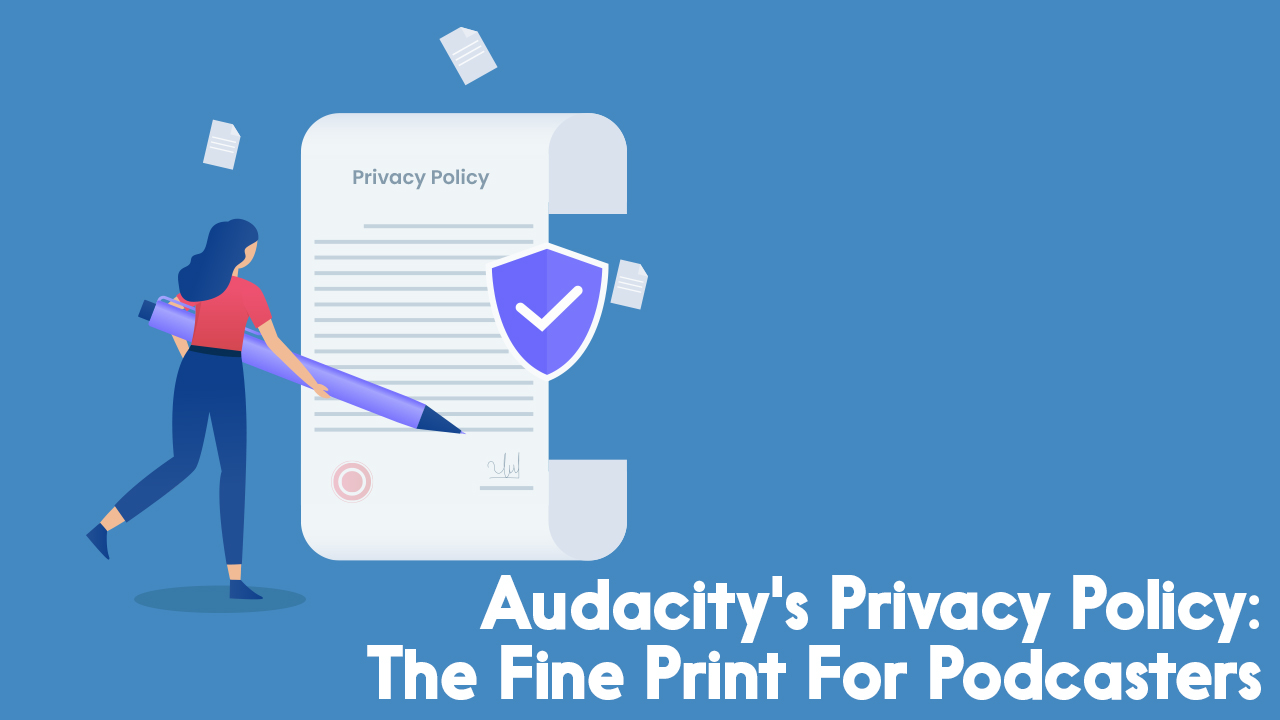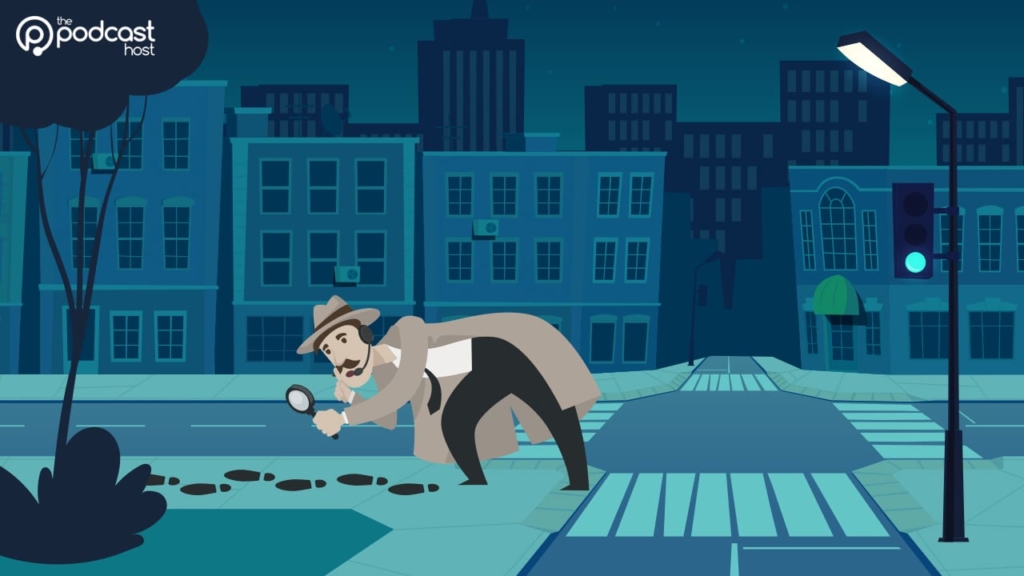Audacity’s New Privacy Policy: The Fine Print for Podcasters

Audacity published an update to its privacy policy on 2 July, and made a lot of users start shouting, “fork.” Literally. The digital audio software is a long-time favorite with podcasters, since it doesn’t cost money to use. Most noticeably, Audacity’s privacy policy states that it will share users’ IP addresses with its parent company, Muse Group, in Kaliningrad, Russia.
This sounds like something out of a Cold War-era spy thriller. But, one could argue that we live in one. Audacity released the policy update on the Friday before July 4 weekend. This is a day when most people in the US would only read email relevant to summer vacation plans. Now, some Audacity users recommend that users “fork” (or reprogram their version of) Audacity. Others say to get rid of it altogether. Let’s look at the changes to Audacity’s privacy policy, and see why it makes some podcasters very uncomfortable.

Editor’s Note
Audacity published an update to their privacy policy and apology on July 22nd, 2021. James Cridland, of Podnews, opined: “The privacy policy now seems clear and fit for purpose. However, it’s highly unlikely that the amendment about storing IP addresses would have been made without independent media holding them to account.” Keep speaking truth to power, podcasters and podcast enthusiasts.
What does Audacity’s privacy policy mean?
When you use Audacity, the software “phones home” and sends your IP address to its parent company. This is the identifier that lets your device send and receive information at a particular location. Audacity’s privacy policy states that they save the IP address “in an identifiable way” for a day.
Many of us use devices and software that already collect our IP address(es), such as social media. Privacy software company Norton says, “It’s generally not dangerous for people to know your IP address. But it all depends on who’s trying to access it. ” Some users feel that this is spyware, to be avoided at all costs.
Audacity’s privacy policy states that they collect data for crash reports or problems with the software. This helps them ensure the app functions properly. This is commonplace, and good business. What’s odd is the vague statement that they collect data for law enforcement. It’s to protect the “legitimate interest of WSM Group to defend its legal rights and interests.”
The privacy policy also states that Audacity “is not intended for individuals below the age of 13. If you are under 13 years old, please do not use the app.”
This doesn’t prevent minors from using the app. It’s the equivalent of saying, “kids, don’t try this at home.”
So, the privacy policy is somewhat vague and ominous.

What does Audacity’s privacy policy mean for podcasters?
Users can email Audacity’s privacy team directly, and request to access, correct, update or request deletion of their personal data. This feels about as concrete as Audacity’s request that people under age 13 not use the software.
I asked a couple of friends who are IT experts to weigh in on this topic; Chris Herdt, a security analyst, and Tom Boutell of ApostropheCMS.
Chris said, “I’m trying to think of what the legal reasons for requesting data about an audio editor would be. In the U.S., probably copyright violation/DMCA. In Russia? Making a seditious podcast, maybe? It seems weird though.” True, last year Podnews reported pirated podcasts popping up on Anchor. So, this data could possibly protect podcasters from content theft.
Tom pointed out a workaround for Audacity users. “It’s open-source, so one can fork the project, which is nothing more than grabbing the source and making the changes you want. Presumably, the community will do that, but then the problem is who takes responsibility for maintaining Windows and MacOS builds.”
Ongoing software maintenance would be more work than making a podcast.
Chris had some other suggestions:
- “Only use Audacity when offline. Unplug, disable wireless. That’s probably a no-go for most people, who are multitasking. Plus there’s a risk that the application queues the data. If you forget to disconnect, it would send all the queued data.
- Disable IPv4 networking. IPv6 uses 128-bit addressing, which makes generating exhaustive lookup tables infeasible. Of course, that’s complicated for most users, and there’s still that one-day clause.”
- Another option might be to use a virtual private network, which is becoming more accessible to the average consumer.
Ultimately, if you started using Audacity to make a podcast, these workarounds could take up time you could spend podcasting.
Is Audacity worth your privacy?
A free tool is good for people who are just starting in audio editing. This way, you can make sure that you really want to podcast, before you spend a lot of money. But, sometimes they aren’t great long-term solutions.
Audacity offers multi-track editing, but it’s destructive. This means that if you cut out part of a sound file, it’s gone forever. You have to save a separate backup before editing.
This isn’t the first time in the past two months that Muse Group has tested Audacity users’ trust. In May, Audacity had to “turn on “strictly optional and disabled by default” telemetry, but the optionality of it was not enough to stop the community from erupting.”
“When you use a free tool, you are the product being sold,” is an oft-repeated Internet adage. Companies that make free software have to sustain themselves one way or another. At the very bottom of Audacity’s privacy policy, it says, “We do not sell personal information.” This doesn’t mean that they don’t use your information for other potential sources of revenue.
On Monday, the 5th, Daniel Ray, head of Strategy for Muse Group, issued a statement, saying, “We do understand that unclear phrasing of the Privacy Policy and lack of context regarding introduction has led to major concerns about how we use and store the very limited data we collect. We will be publishing a revised version shortly.” So, Muse Group seems to be responding to user feedback.
Audacity isn’t the only audio recording and editing software in the world. Our Complete Guide to Podcast Software can help you figure out options, should you choose to upgrade. Plus, our all-in-one podcast solution, Alitu, can help you record, edit and publish your show as well.
